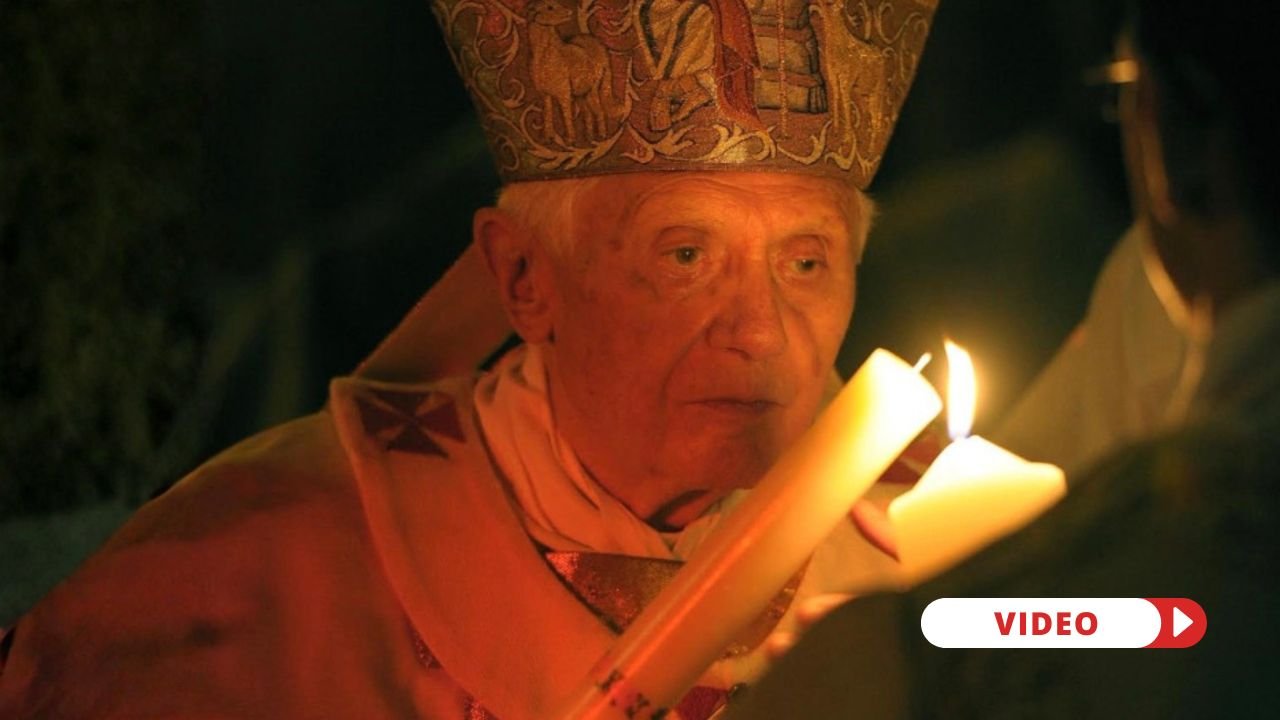HAMBURG, GERMANY / VATICAN CITY — On April 18th, 2005, German Cardinal Joseph Ratzinger delivered a memorable sermon in St. Peter’s Basilica. It was shortly after the death of John Paul II — and no one knew that Ratzinger would be elected Pope the next day:
“Today, having a clear faith based on the Creed of the Church is often labeled as fundamentalism. Whereas relativism, that is, letting oneself be ‘tossed here and there, carried about by every wind of doctrine,’ seems the only attitude that can cope with modern times. We are building a dictatorship of relativism that does not recognize anything as definitive and whose ultimate goal consists solely of one’s own ego and desires.”
Pope Benedict XVI and Truth
Twenty years later, many see this warning from Pope Benedict XVI as prophetic. His warning about the “dictatorship of relativism” continues to echo across the Church and society. Cardinal Kurt Koch of the Dicastery for Promoting Christian Unity echoes this sentiment: “today, there is a very strong tendency to be intolerant in the name of tolerance if one does not hold the opinion that is expected. That is why it is liberating to search for the truth in all openness, honesty and freedom.”
Professor Ralph Weimann noted “if there is no truth in a society, then there is also no inviolable human dignity. That is why it is important to talk about this issue. And that is what we are trying to do here in Hamburg.”
Weimann is part of Fundatio Christiana Virtus, a group that organized the Benedict XVI Forum in Hamburg, Germany, under the theme “Truth as a challenge for the Church and society.” The conference, running from November 7th to 9th, 2025, brought together theologians, Church leaders, and young Catholics inspired by the late pope’s motto, “Co-worker of the Truth.” Weimann claimed that “the truth always remains attractive. Pope Benedict XVI has repeatedly pointed this out. This seems to exert a new appeal, especially for people who are serious, who really want to follow the path of faith and who have an inner sensitivity that there is more to life than the here and now.”
Among the Vatican representatives, Prof. Markus Graulich, Undersecretary for the Dicastery for Legislative Texts, reflected on the Church’s moral duty in society. “My lecture is about society and politics. Church and state are separate, but according to Pope Benedict and Catholic tradition, the Church has a duty to remind the state that there are non-negotiable principles that take precedence over legislation and cannot be overridden by majority decisions.” Koch emphasized the unifying nature of truth: “I believe we need to rediscover that every person has their own views and convictions, but that the truth cannot be divided. The truth is a shared truth; otherwise, any dialogue would be very difficult.”
Held for the first time in northern Germany, the Benedict Forum brought new energy to a region where Catholics form only 10% of the population. Archbishop Stefan Heße, of the Archdiocese of Hamburg, recognized this. “It is important for believers in the diaspora to meet each other and strengthen each other in their faith. That’s why I’m grateful that they came up with the idea of trying it out here with the Benedict Forum. And it seems to have been quite successful.”
So successful that “we have now received many requests to set up similar Benedict forums in other places, even in America and other countries. So word seems to be spreading slowly that Pope Benedict really has something to say to people,” according to Weiman.
Speakers also shared personal encounters and memories of Pope Benedict XVI.
“At that time, I was a deacon in Northern Germany. And when I told him that, he asked me, ‘Are there still Catholics there?’ I replied, ‘With great joy, Holy Father, but they are a little scattered!’ And then he said, ‘Then hold high the banner of the Holy Spirit there!’ That is the mission he gave to me, and I have been striving to fulfill it ever since.”
— Fr. Thorsten Weber, Cathedral Priest of St. Mary’s Cathedral, Hamburg
“Yes. He became even more transparent in his devotion to the Lord. He was always modest, and Christ always spoke through him, if I may put it so grandly. But as pope, he became even more transparent.”
— Fr. Martin Trimpe, Former Co-worker of Prof. Joseph Ratzinger
The Benedict Forum reflects Pope Benedict XVI’s enduring belief that dialogue about faith must always lead to dialogue with God. “Benedict would be delighted. That was his lifeblood. When it came to talking to other people, when it came to the truth, he was immediately alert and willing to make any personal sacrifices,” said Fr. Martin Trimpe. Fr. Thorsten Weber expressed similar sentiments in that “I truly believe that we will reach the point where he will be declared a Doctor of the Church, and I hope so too!”
Adapted by Jacob Stein. Produced by Rudolf Gehrig; Camera by Fabio Gonnella and Tim Hotzelmann; Special thanks & Credits to EWTN Germany, Fundatio Christiana Virtus e.V., Fr. Ralph Weimann, and Dr. Wilhelm Hegenbart.
